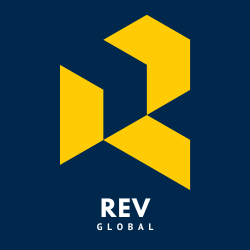The consulting industry is rapidly evolving and technology is playing a more central role in the industry. Artificial Intelligence (AI) is one such technology that is being embraced by consultants and has revolutionized the way consultants collect and analyze data. One AI-powered tool that has gained popularity among consultants is ChatGPT. In this blog post, we’ll provide an overview of ChatGPT and its implications for the consulting industry.
1. What is ChatGPT?
ChatGPT is an AI-powered tool that uses natural language processing (NLP) to analyze and understand text. The tool is built on the GPT-3 language model, which is one of the most advanced NLP models in the world. ChatGPT can interpret and generate human-like responses to text-based inputs through a chat interface. With ChatGPT, consultants can engage in conversations with clients, gather and analyze data, and make informed decisions.
2. How is ChatGPT used in consulting?
ChatGPT has numerous use cases in consulting. The tool can be used for market research, customer engagement, and data analysis. For example, consultants can use ChatGPT to conduct surveys, analyze sentiment from social media posts, and answer frequently asked questions from clients. ChatGPT can also be used to automate tasks such as report writing and data entry. By using ChatGPT, consultants can save time, reduce costs, and improve client satisfaction.
3. Benefits of ChatGPT for consulting
ChatGPT has several benefits for the consulting industry. Firstly, the tool allows consultants to gather and analyze data faster and more effectively. Secondly, ChatGPT can help consultants provide more personalized recommendations to clients based on their unique needs and preferences. Thirdly, the tool enables consultants to automate mundane tasks, freeing up more time for strategic thinking and decision making. Lastly, ChatGPT can improve client satisfaction by providing faster and more accurate responses to their queries.
4. Considerations when using ChatGPT in consulting
While ChatGPT offers many benefits, there are also several considerations that consultants need to take into account when using the tool. Firstly, ChatGPT is only as good as the data it is trained on, so consultants need to ensure that the data they feed into the tool is accurate and relevant. Secondly, ChatGPT cannot replace the expertise and experience of human consultants, so it should be used as a complement to human analysis. Lastly, consultants need to ensure that clients understand the limitations of ChatGPT and how the tool is used to support consulting services.
ChatGPT is an exciting development in the consulting industry and has the potential to transform the way consultants work. By using AI-powered tools like ChatGPT, consultants can gather and analyze data faster, provide more tailored recommendations, and improve client satisfaction. However, it’s important to remember that ChatGPT is not a replacement for human analysis and consulting expertise. Instead, it should be used as a complement to human analysis to augment the services provided by consultants. As the consulting industry continues to evolve, AI-powered tools like ChatGPT will be an essential component of consultant’s toolkit.

